Kaki King had big plans for 2020. The world-renowned fingerstyle guitarist had upped her already considerable game on her previous record, 2015's The Neck Is a Bridge to the Body, by painstakingly creating an immersive live production in which visuals generated by a unique projection-mapping process were displayed upon her signature Ovation as she performed. This year she planned to continue on that trajectory with her newest project, Data Not Found, which explores modern themes of “big data," artificial intelligence, and how they function in the natural world.
King worked with a team that included sound designer Chloe Alexandra Thompson to create the show, which had its international premiere in Abu Dhabi in 2019 and its U.S. premiere at the 2019 Ellnora Guitar Festival. Data Not Found was then set to tour in 2020, before which King would record the performance piece's soundtrack album. Unfortunately, as the pandemic reared its head, things went very awry during the March 2020 sessions.
“We all gave each other COVID while we were making the record," King explains. “We were being careful but it was just everywhere in New York City. All of us in the studio got sick." Once everyone recovered, it became clear that tour plans would have to be postponed, but King decided to proceed with the release of the record, Modern Yesterdays. “We figured it would've been a piece to promote and talk about the show. But now it's its own thing." She adds, “It's sort of shocking that it even got done, given the timeframe."
A Soundtrack Without a Show
Of course, the album stands quite easily on its own legs. “The more I listen to it, the less I see it as the soundtrack to a live show," King agrees. Opening track “Default Shell" finds the guitarist playing a minimalist-inspired riff, her clean, midrange-focused acoustic tone surrounded by a warm bed of synth—courtesy of Thompson—amidst what headphones reveal to be an expansive stereo field. As the record proceeds, Thompson's synths seem to evolve organically around King's guitar on tracks such as “Can't Touch This or That or You or My Face" and “Lorlir." Elsewhere, they stray from this path. For instance, on “Godchild" King plays a mostly unaccompanied, groovy midtempo figure with a dry sound that feels cozy amidst the vastness of the other tracks.
The sound of King's guitar is certainly at the center of the record, but a big part of Modern Yesterdays is her collaboration with Thompson, whose spacious sounds shape and amplify the emotional content of the compositions, serving as an ideal complement to King's playing. Thompson's work as sound designer on this project blurs the line between collaborating musician and producer, and King quickly credits her hard work. “Even though we're improvising inside of some songs, it's not completely random," King says. “She is figuring out and tuning in and dialing in these very interesting things that happen during the show. Everything you hear in the entire show goes through her ears and her computation. She's not just a sound engineer that's making sure anything that may happen is gonna sound good. There's a lot more creation involved and a lot more creative decision-making—on her part, independently, and our part, collaboratively."
While King knew she was creating something much larger-scale than a typical recording project, she always starts with the music first, allowing that work to guide the way. “I don't really worry about why or what it's for," she explains. “I like to enter a project with about 50 percent of the tunes very well worked out and then maybe some good ideas and maybe some hunches." Her process is organic and takes time: “Some of these things were written over years. Ultimately, it's kind of sitting there waiting to be discovered in my guitar. I write two seconds of music that I come back to six months later and then a song comes out, or I show up at a friend's studio to hang out and I end up writing a piece. There's no logic, no equation or calculus that I can recreate, year after year. I just have to trust the process, that it will get done eventually. And as long as I'm playing, I'm writing."
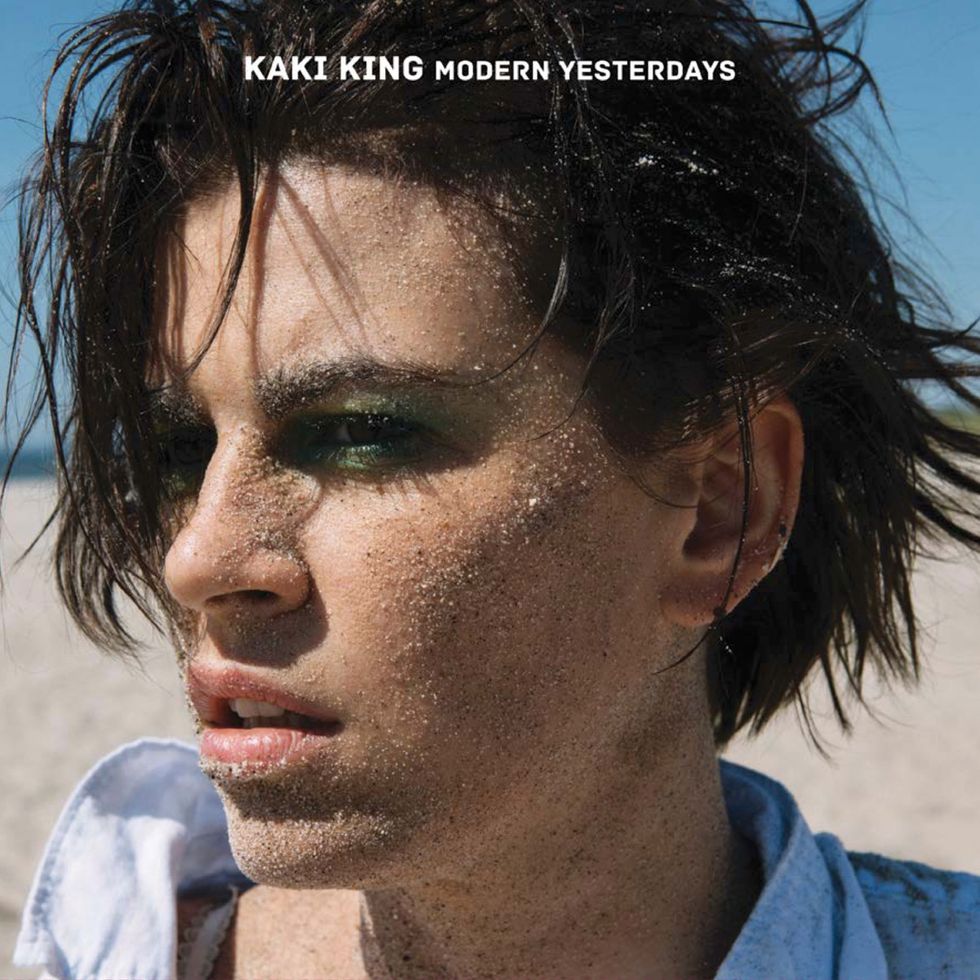
King created Modern Yesterdays with sound designer Chloe Alexandra Thompson for a touring audio-visual show called Data Not Found.
In that way, King sees her songwriting work as that of a “revisionist," slowly developing ideas over the course of time through trial and error until the song reveals itself, often through repeated performance. That process of development never ends, even once a song is recorded, as the guitarist may continue to delve into the nuance and detail of any of her songs. She elaborates, “I don't think anything ever gets really finished. Especially as a solo guitarist, I'm always trying to do something a little different. It's like a see-saw effect: I may go really long in one direction with a really long, drawn-out, improvised intro before I get into the song, same for the outro or middle. It's sort of like adding something, chipping away at that, then adding something and chipping away at that, until eventually it's like, 'This is the nicest way I know how to play this particular piece.'"
Data Not Found was created with this idea in mind, so when the production does eventually tour, audiences will hear the songs on Modern Yesterdays continue to develop. King explains the methodology behind the performance. “In Data Not Found, there's maybe one completely pre-recorded video where I'm trying to hit visual metronome marks. Everything else is improvised. Data Not Found is rigid in terms of getting from cue to cue as far as lighting and coordination with my video, lighting, and sound people, but within each scene it's all up for grabs."
The Passerelle Bridge
One Modern Yesterdays track that sounds noticeably different is “Teek," in which King creates melodic and percussive sounds and uses koto-inspired bends by employing her Passerelle Bridge, a device the guitarist created in partnership with luthier Rachel Rosenkrantz. (See video below where King performs "Teek" using the Passerelle Bridge.) The Passerelle is a sleek metallic object that sits between the strings and fretboard and functions as a secondary bridge, breaking each string into two independently playable sections. “Teek" is a fine example of how King uses the gadget to achieve sounds that she'd long been searching for.

Guitars
Ovation 2078-KK5S Kaki King Signature Acoustic-Electric
1970s Guild F-312 12-string
Takamine EF740FS
1975 Fender Telecaster Deluxe
Effects
Vo-96 Acoustic Synthesizer
Passerelle bridge
Strings and Picks
Elixir strings
She previously sought out DIY-style solutions as part of this quest, shoving various items between her strings and fretboard—maybe most notably including a plastic knife. But King wasn't satisfied until meeting Rosenkrantz and beginning a trial-and-error process to perfect the sound and design of what became the Passerelle. The duo went through various stages of prototypes in order to explore all of the possibilities behind their idea. King explains, “We had to decide how tall it should be, how far the strings should be spaced, how to get the right balance of the groove that the string is in so it doesn't buzz and it doesn't slip out—a lot of tricky stuff."
Ultimately, King found the right collaborator in Rosenkrantz, who is not only a luthier but has a background in industrial design and is a professor at the Rhode Island School of Design—all of which King credits for the final outcome of the Passerelle: “All that combined is really the essence of what the piece looks like."
Beyond King's use of it, the Passerelle bridge has reached plenty of players who have created their own sounds with the device. “We've sent it to a lot of people who've shown us what they're doing with it and it's been a great pleasure and a fascinating world to open up," King says proudly. Ultimately, she sees it as something anyone can figure out how to use, adding, “It's first and foremost a noisemaker. You put it on your strings and tighten it up to some kind of tension and you can pluck on one side and bend on another. It's very basic." It's that simplicity that makes the Passerelle both accessible and fun to a wide variety of guitarists.
Life at Home
With her tour postponed and an ambivalence about the typical lack of audience feedback from streaming performances, King is one of many performers with high-level technique who have realized the limitations of being stuck at home. “I'm learning the hard way that there is almost no good way to maintain one's chops in a vacuum."
Kaki King's 2015 project, The Neck Is a Bridge to the Body, was an immersive multi-media live production in which visuals were projected onto her signature Ovation Adamas 1581-KK acoustic as she performed. Photo by Marla Aufmuth
It's not that King doesn't play—she still plays every day. It's the absence of two huge motivators—a deadline and the risk of messing up during a live performance—that make playing a thrill and add impetus to keeping chops sharp. King was generous enough to share her own experience and admits the effects of being stuck at home in a pandemic have set in. “It has been super, super hard. My stamina and accuracy have gone to shit. It totally worries me, and I don't know how to recreate the setting. What am I supposed to do? How do I recreate the situation by which I'm supposed to be prepared for a show when there's no show? It's a big conundrum. I think there are much more talented people that have their shit together that aren't in this situation, but I am definitely in it."
Home life has been inspiring King to work in some new ways, though, and she's branched out to learning material from other composers. “I have been learning a couple of Gyan Riley's tunes and it's been really fun," she shares. “It's been something to do at night after the kids go to bed and brings me back to that feeling when I was a kid of successfully learning someone else's song."
Kaki King is known for acoustic fingerstyle playing, but she also incorporates a 1975 Fender Telecaster Deluxe into her Data Not Found live show. Photo by Waleed Shah
She's applied that inspiration more broadly and recently performed a duet with guitarist Yasmin Williams. The two recently performed a radio show for New York's WNYC, and King explains, “They did the thing where they asked us to play together. After so many years of being the awkward solo fingerstyle player who doesn't really solo and having to noodle around, I said, 'How about we take a different approach and I learn one of your songs, note-for-note, and we play it together in unison?' We took the time to make it really special."
If nothing else, finding inspiration in the work of others may be something King uses to keep herself playing while many players struggle to adjust to gig-free life. “Learning someone else's song is such a joy," she says, adding, “I'm looking forward to doing more."
This video of Kaki King playing “Teek" also serves as an introductory lesson on how to use the Passerelle bridge. With closeup shots and multiple camera angles, it's easy to get a good sense of possibility and see how King uses this object to create unique sounds on her guitar, from percussive arpeggios to big, open-string bends.




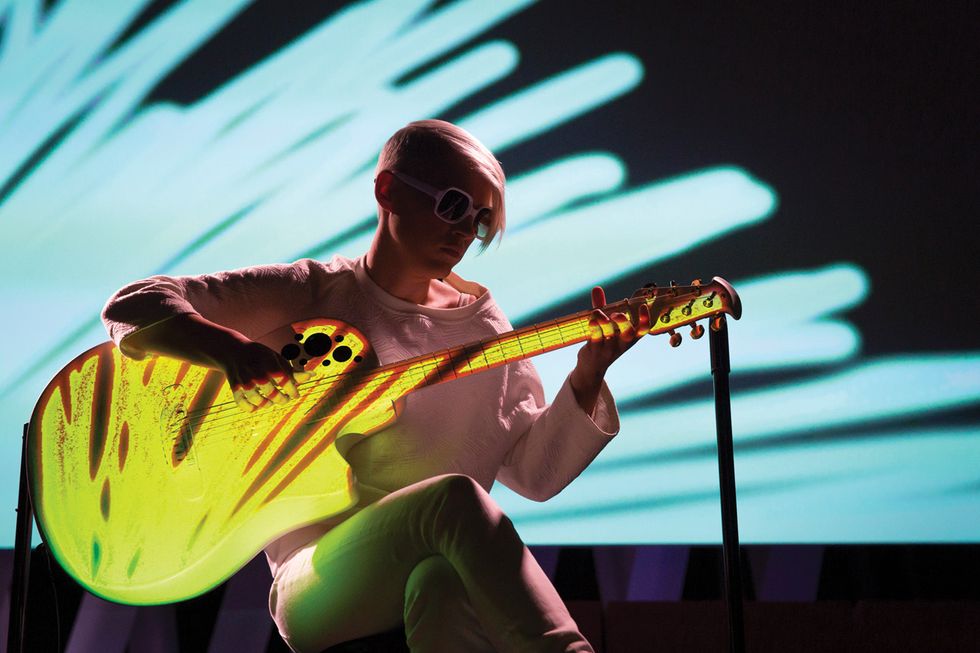
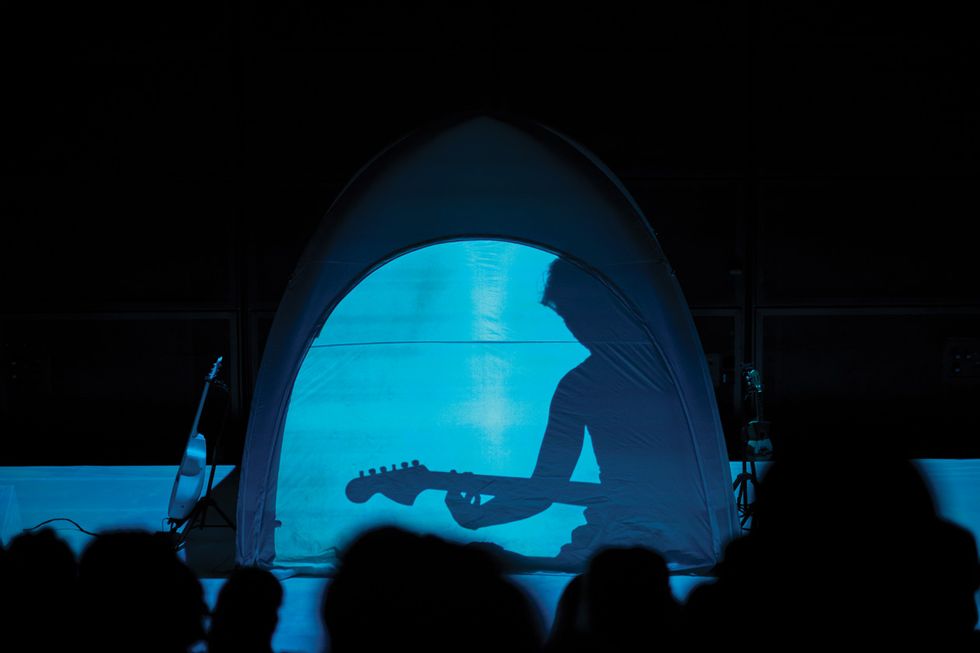




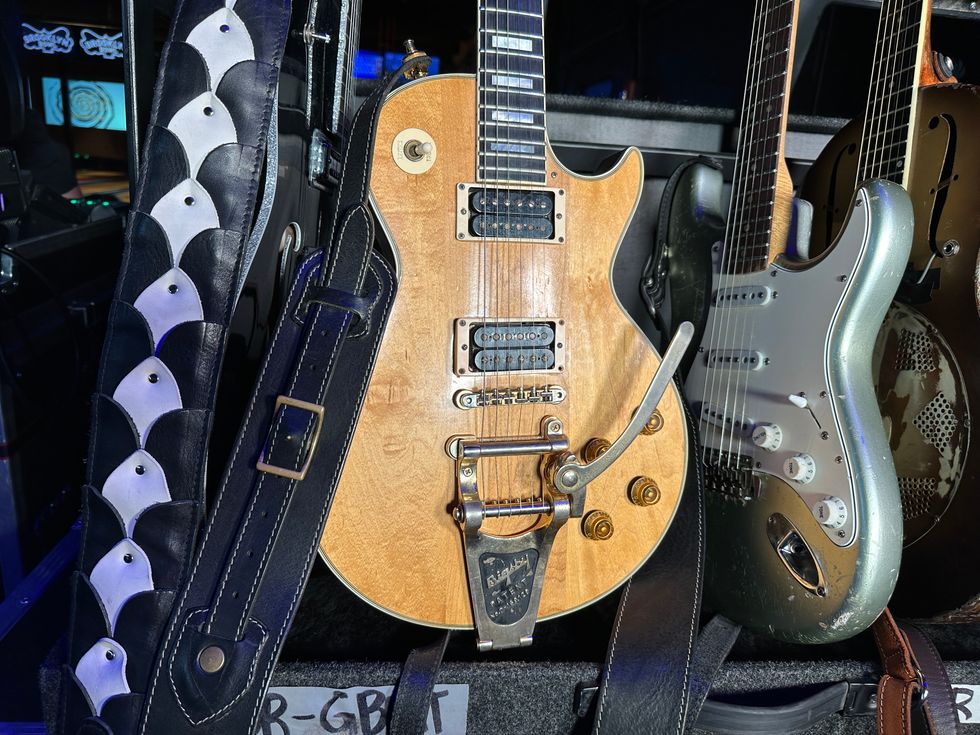
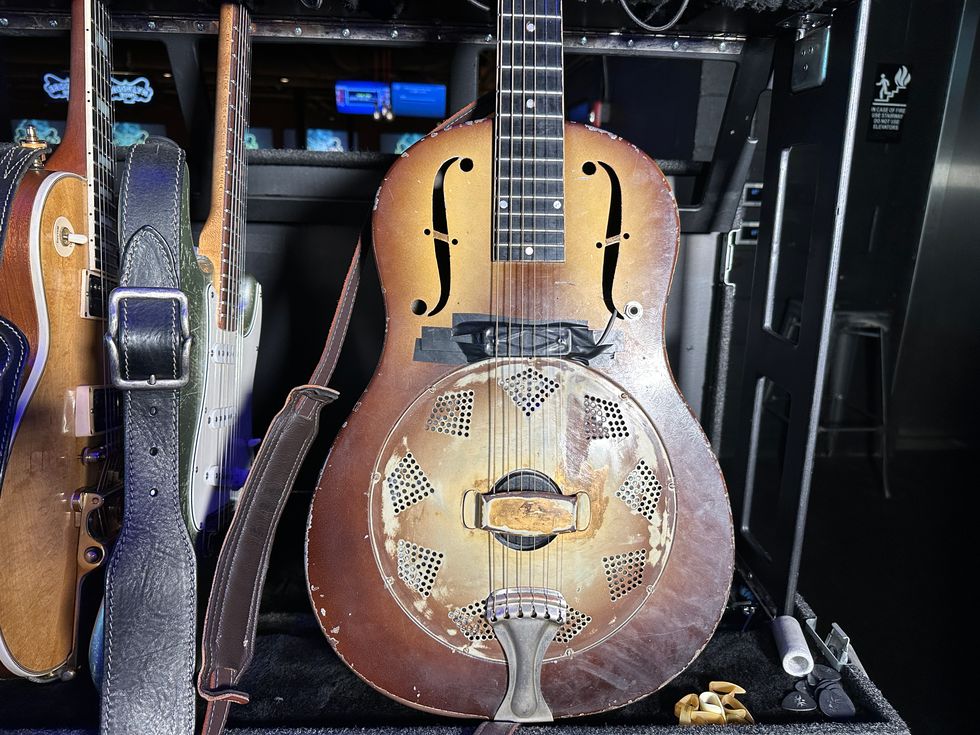
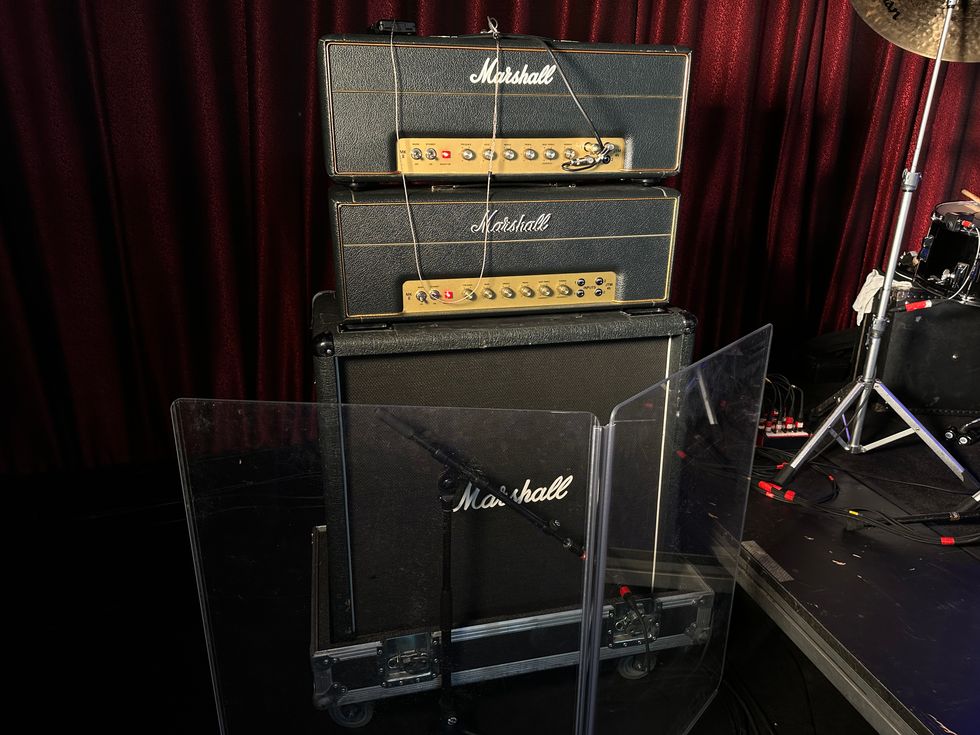
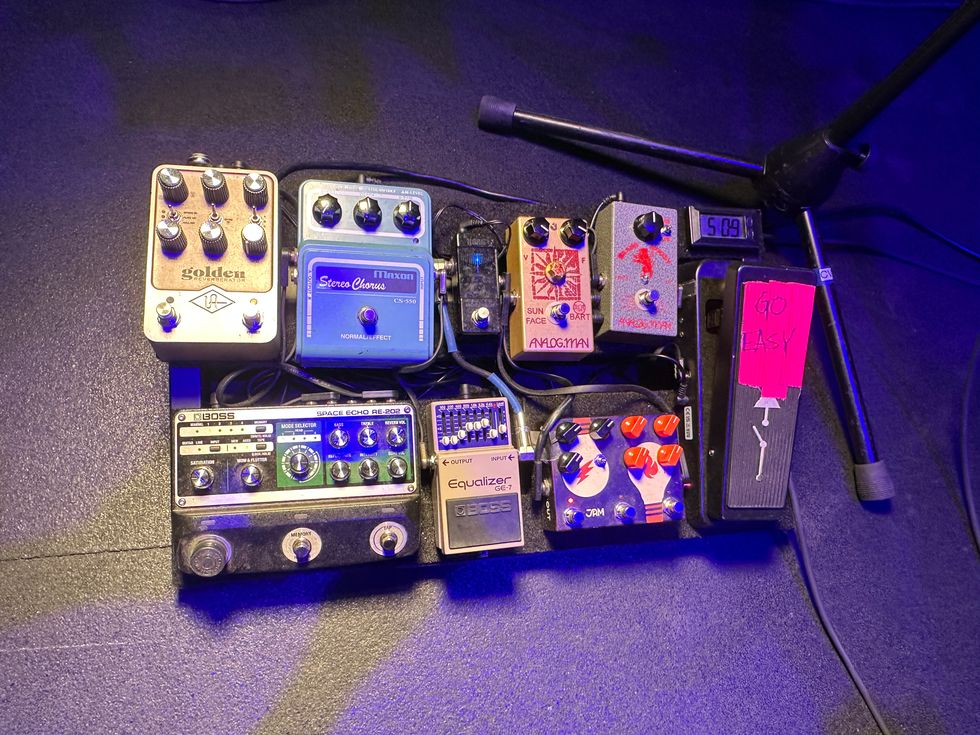
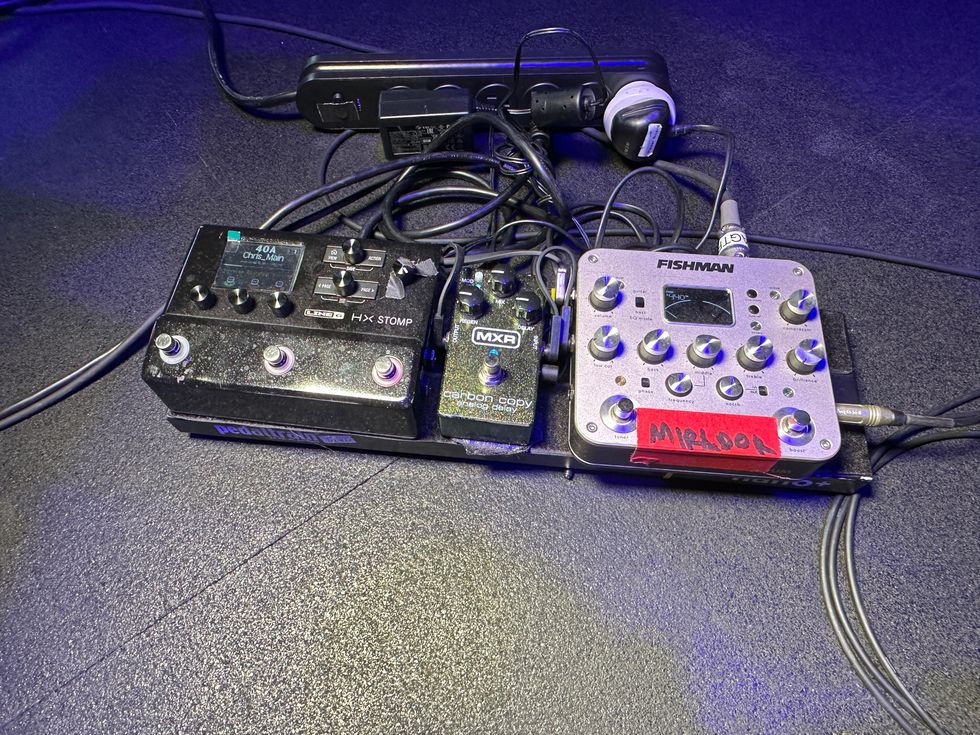
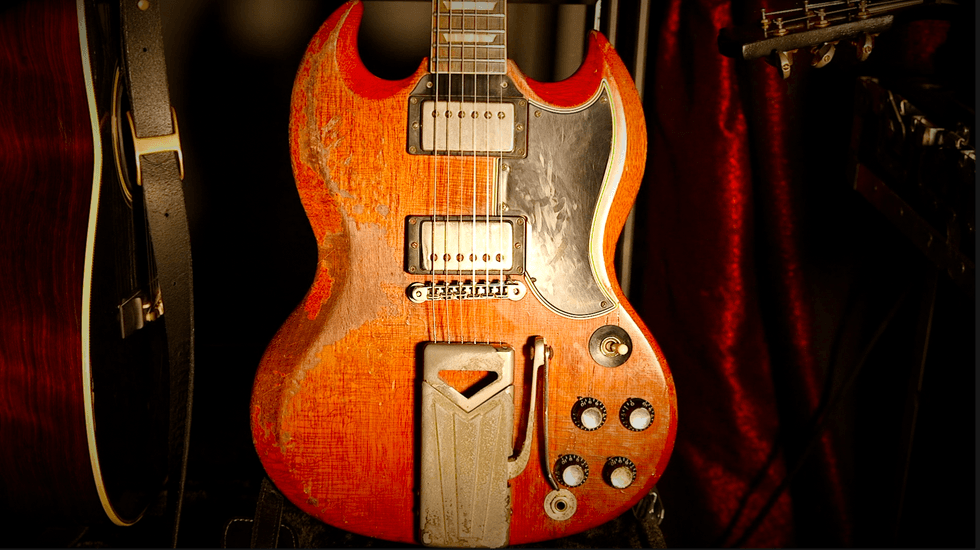
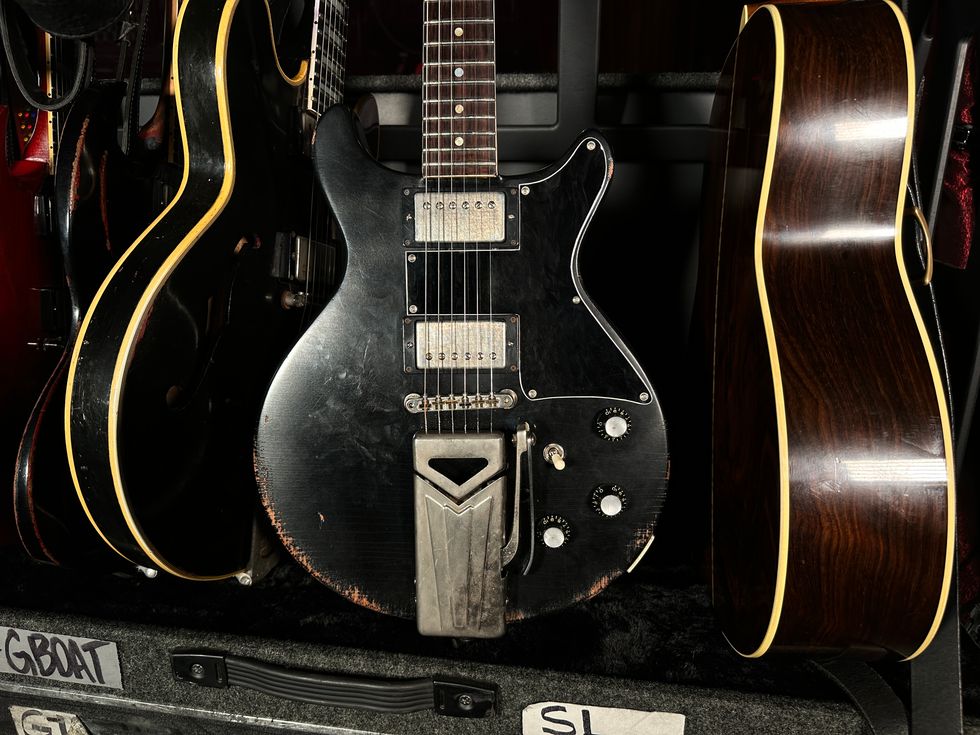
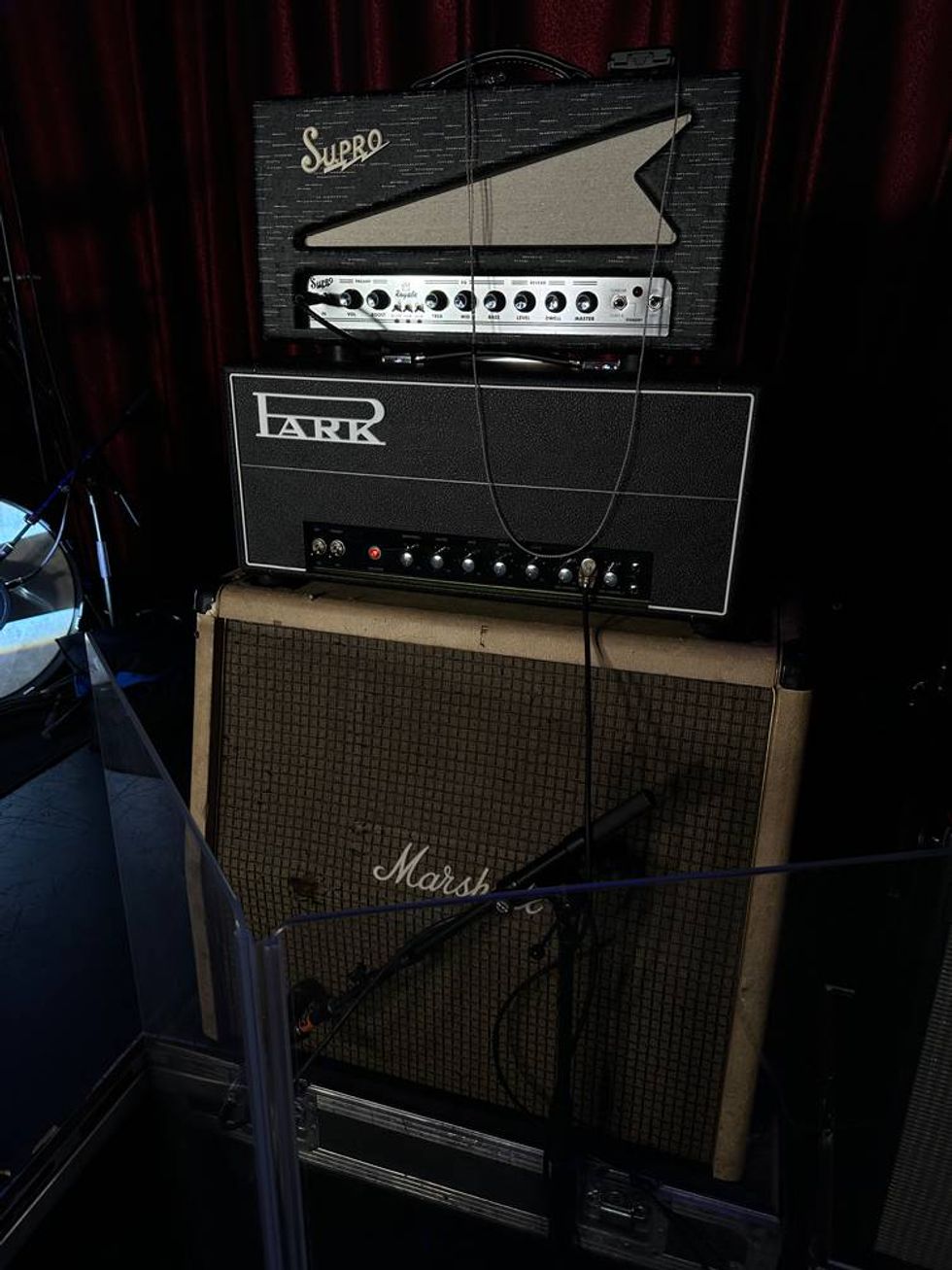
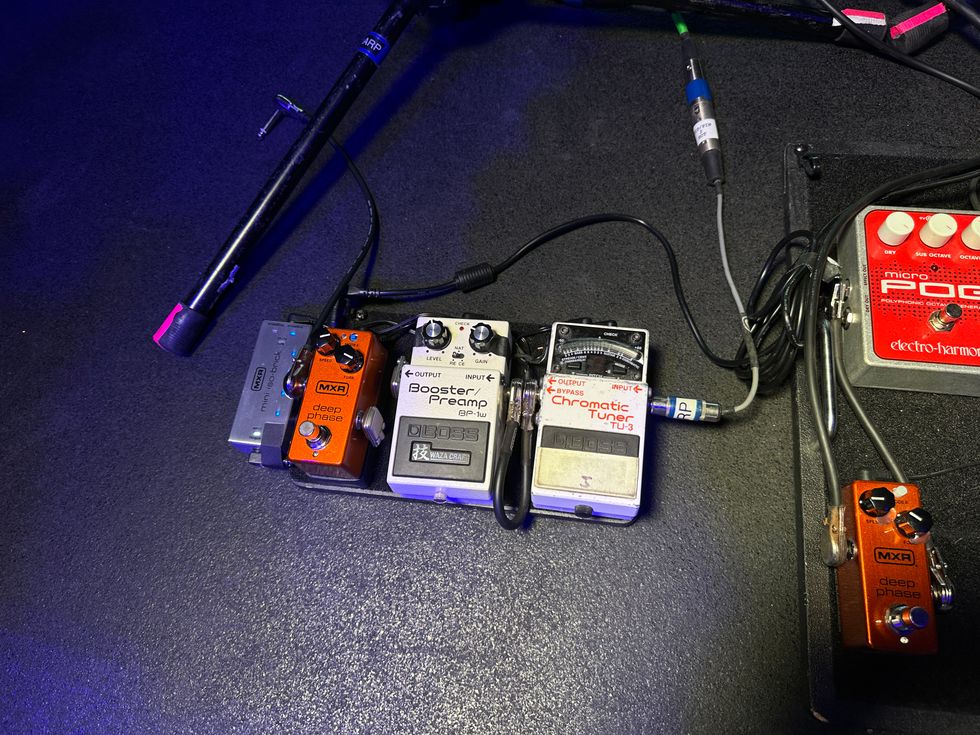
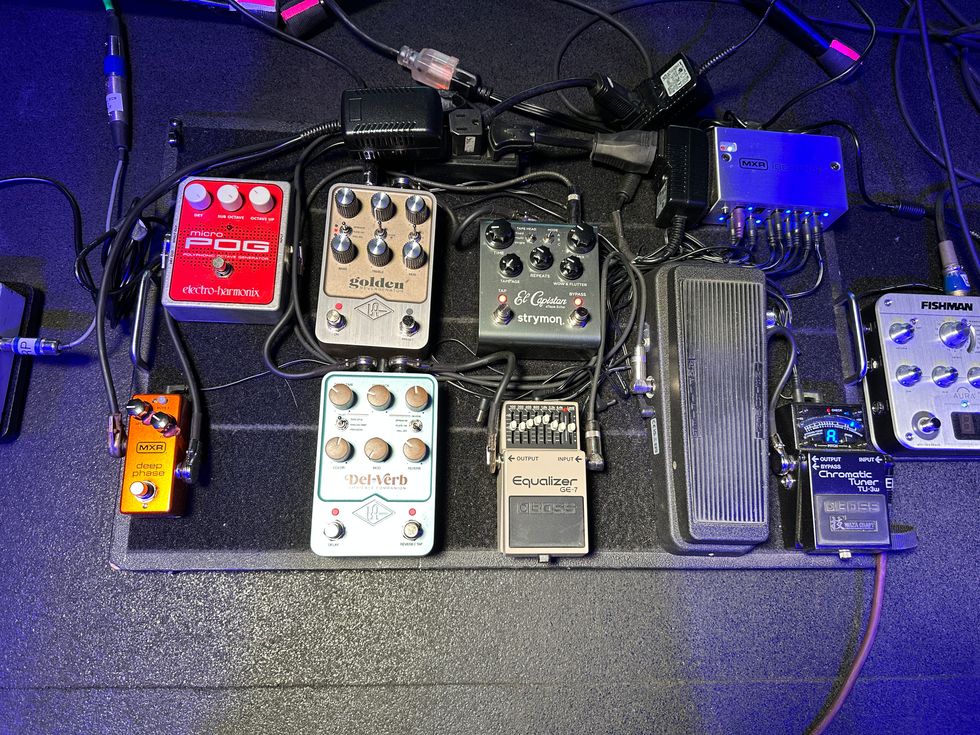
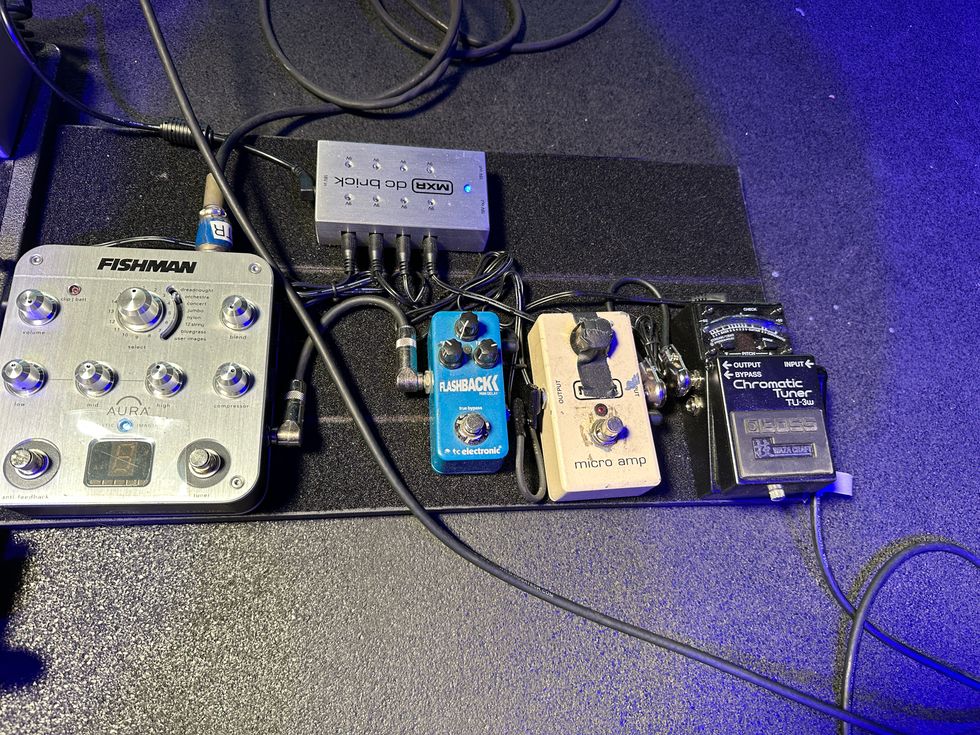

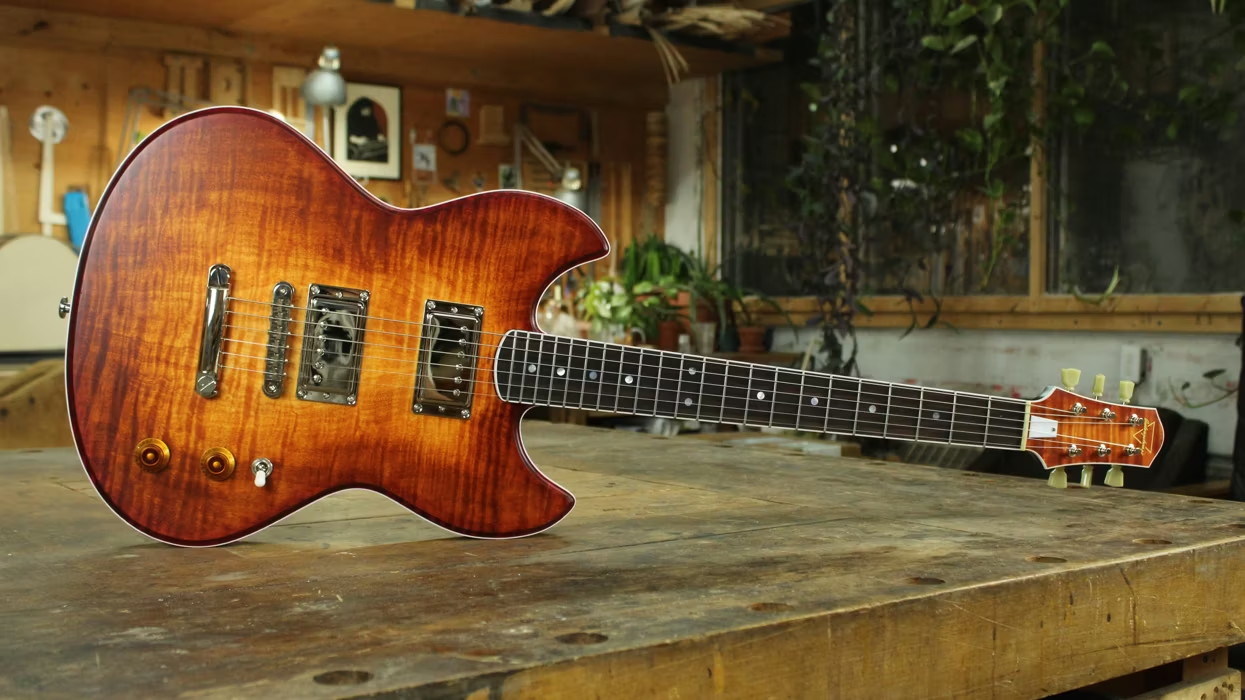
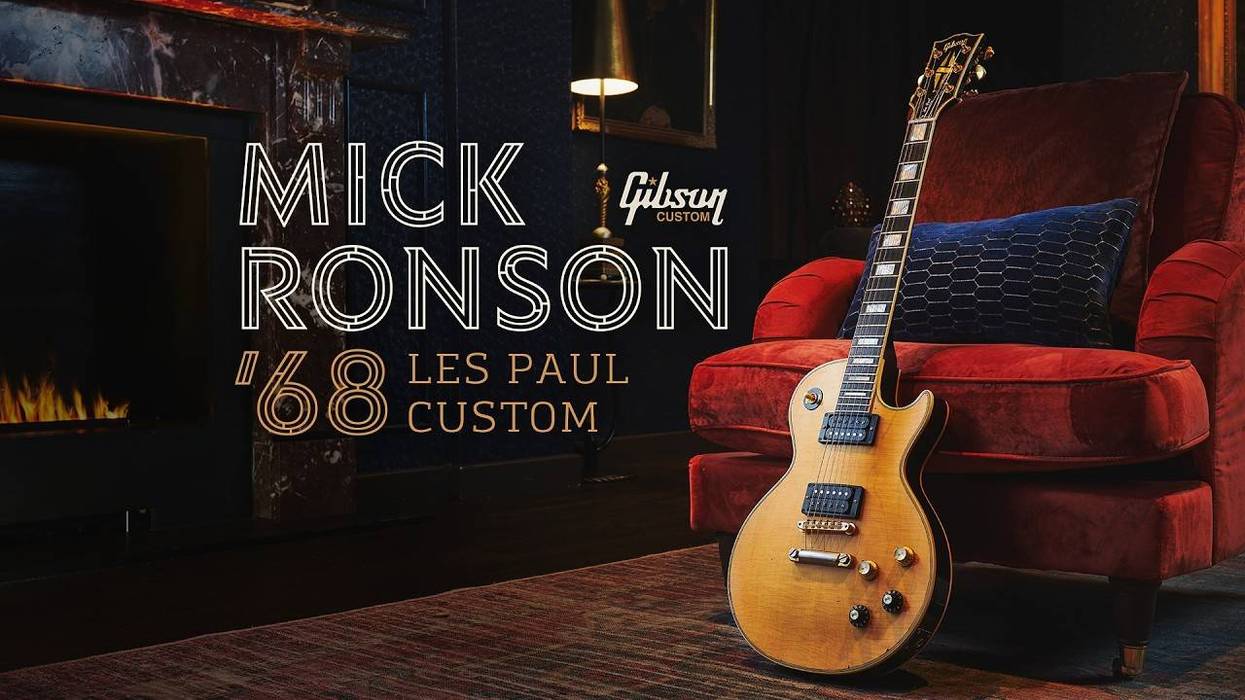
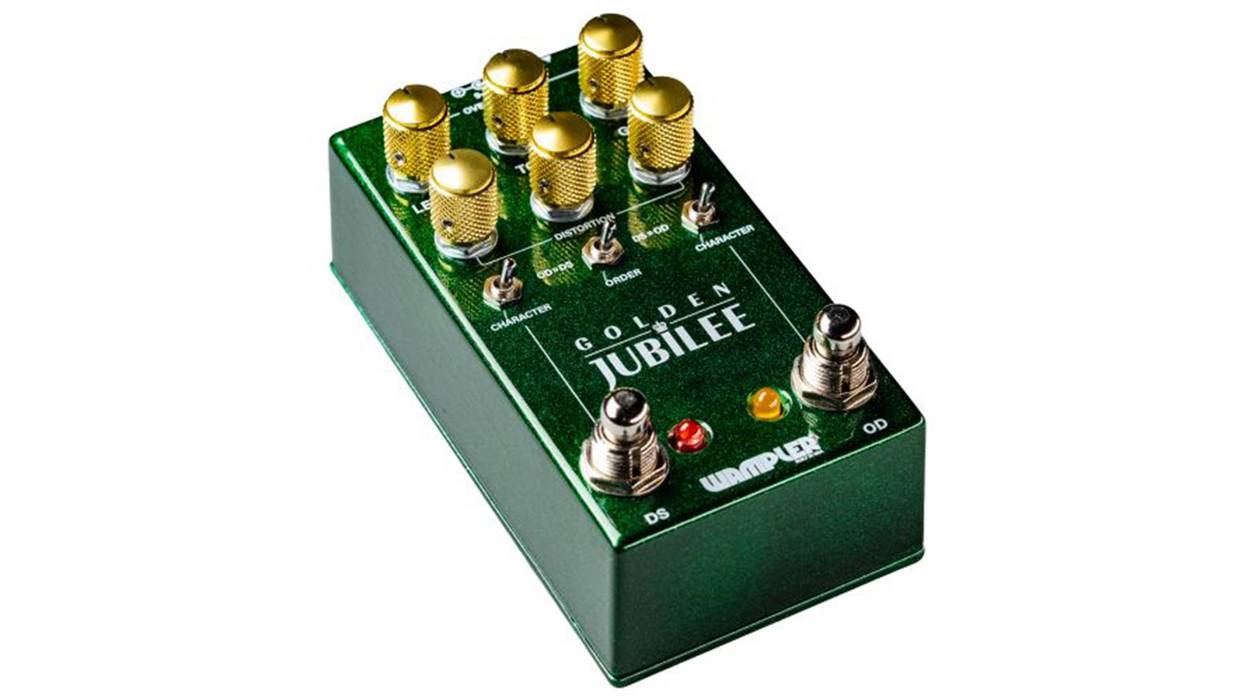

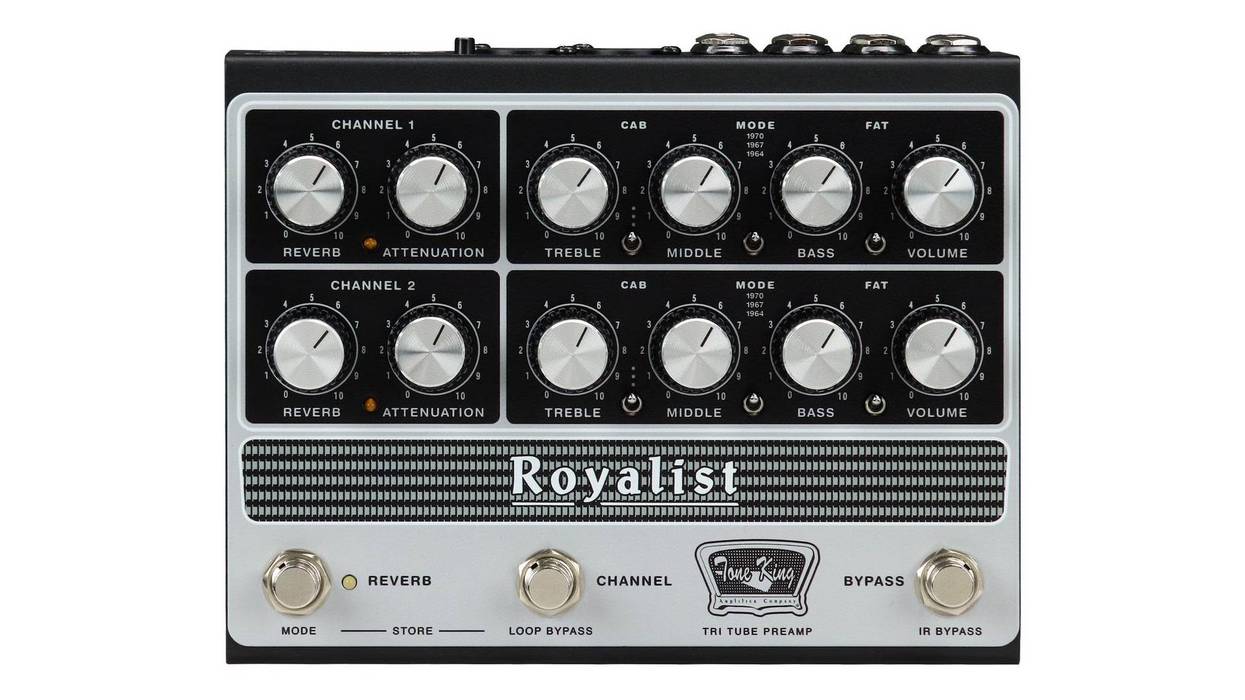
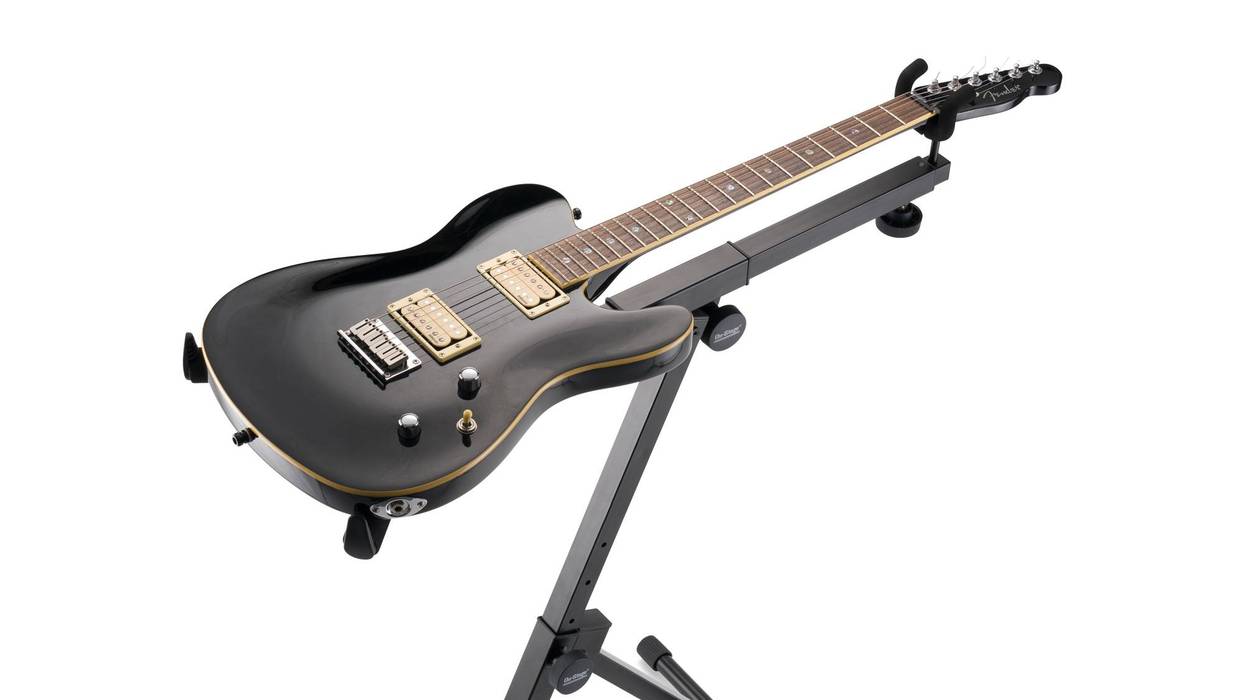




![Rig Rundown: Russian Circles’ Mike Sullivan [2025]](https://www.premierguitar.com/media-library/youtube.jpg?id=62303631&width=1245&height=700&quality=70&coordinates=0%2C0%2C0%2C0)















